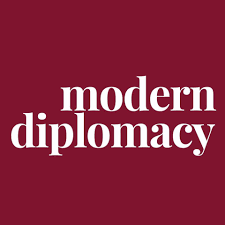Modern Diplomacy: Truth about Bako Sahakyan

By Trend
One of the main problems of authors writing on the Armenia-Azerbaijan Nagorno-Karabakh conflict is the misuse of the terminology and there are different groups who misuse the terminology on the conflict, Javid Valiyev, Head of Foreign Policy Analysis department, Center for Strategic Studies under the President of Azerbaijan, said in his article published in Modern Diplomacy.
“Some authors in purpose misuse the terminologies like the former US ambassador to Armenia John Evans did. John Evans presented Nagorno-Karabakh as a “legal entity” and Bako Saahakyan as its “legal representative”,” wrote Valiyev.
He went on to add that others unintentionally interpret the terms by describing Bako Sahakyan as a “leader of Nagorno-Karabakh”.
“While the author’s approach in the article is rather different, one can assume that the use of the “Nagorno-Karabakh leader” in the headline is an unintentional misuse of the word. The headlines are very important since they dictate number of people reading the story, when social media could massively spread it out,” the article reads.
Valiyev wrote that firstly, Bako Sahakyan, was born in Khankendi, then the central city of Nagorno-Karabakh Autonomous Oblast (NKAO) of Azerbaijan.
“In 1988, before becoming the activist of the separatist movement of Nagorno-Karabakh, Bako Sahakyan held different positions in NKAO. In 1990, he joined Nagorno-Karabakh separatist military movement against Azerbaijan. Sahakyan started his career as a responsible person for smuggling arms for Nagorno-Karabakh separatists from abroad, but he was called back due to embezzlement of some money. As a leader of separatists, he is known for buying ordinary people’s loyalty through cash money,” said the article.
The author notes that secondly, Bako Sahakyan cannot be recognized as the “legitimate representative of Nagorno-Karabakh”, since Azerbaijanis living there were deported from their homelands in between 1988-1994.
“Until today, more than 780.000 Azerbaijanis have been deported from the Nagorno-Karabakh region as a result of the Armenia-backed military operations internationally recognized as occupation by the UN Security Council resolutions and resolutions from other international organizations. Because of the occupation, the members of Azerbaijani community of Nagorno-Karabakh remains internationally displaced persons in different regions of Azerbaijan. Thus, the Nagorno-Karabakh region is not consisted of Armenians only, the Azerbaijani population used to live there before they were forcefully left from their homelands.”
Bako Sahakyan is a representative of illegal entity that occupied the sovereign state’s territories, Valiyev said, adding that Nagorno-Karabakh is an internationally-recognized part of Azerbaijan.
“The issue is not that no country in the world recognizes separatist regime in Nagorno-Karabakh as an independent state; it is merely enough to glance at the map of Azerbaijan on the UN official page. The official website of the US State Department also displays Nagorno-Karabakh as a part of Azerbaijan. And yet, despite the fact that the UN and also the United States recognize Nagorno-Karabakh as a part of Azerbaijan, the US State Department still provided the visa for Bako Sahakyan. By issuing a visa for the separatist leader, the U.S. government indirectly supports the illegal activity of separatists, which killed thousands of people and caused the mass deportation of the civilian population from their homelands,” said the article.
To sum up, the author wrote that whether intentionally or unintentionally, misusing the terminology of the Armenia-Azerbaijan Nagorno-Karabakh conflict serves the legalization of the illegal entity on the territory of the sovereign state, which is totally unacceptable.
“Officials and experts should be careful in choosing the terminology. Because, separatism is not just a problem for Eurasian geography, but as we have seen in the case of Catalonia, for the whole world,” said the article.
---
Follow us on Twitter @AzerNewsAz
Here we are to serve you with news right now. It does not cost much, but worth your attention.
Choose to support open, independent, quality journalism and subscribe on a monthly basis.
By subscribing to our online newspaper, you can have full digital access to all news, analysis, and much more.
You can also follow AzerNEWS on Twitter @AzerNewsAz or Facebook @AzerNewsNewspaper
Thank you!
